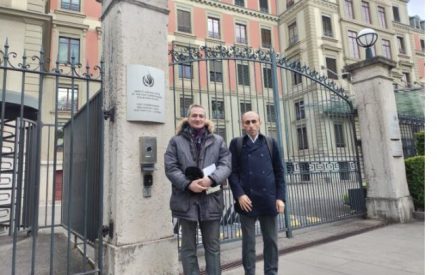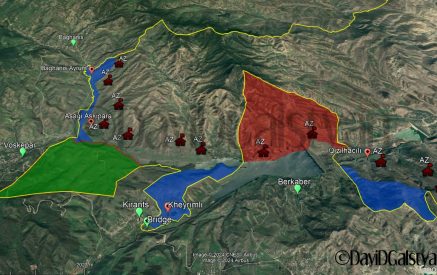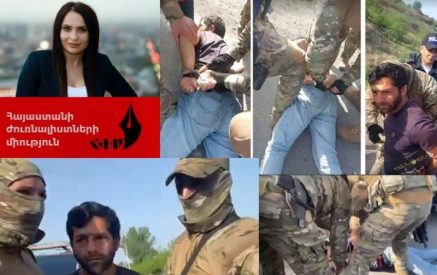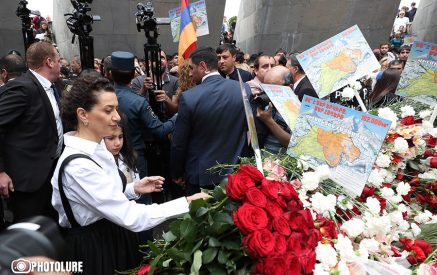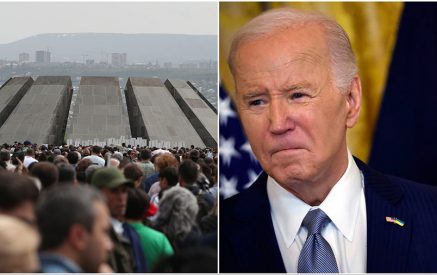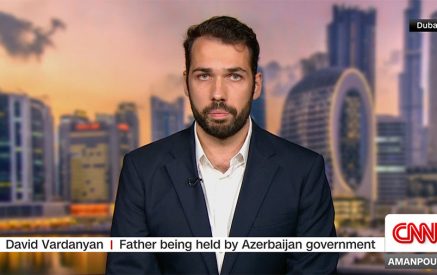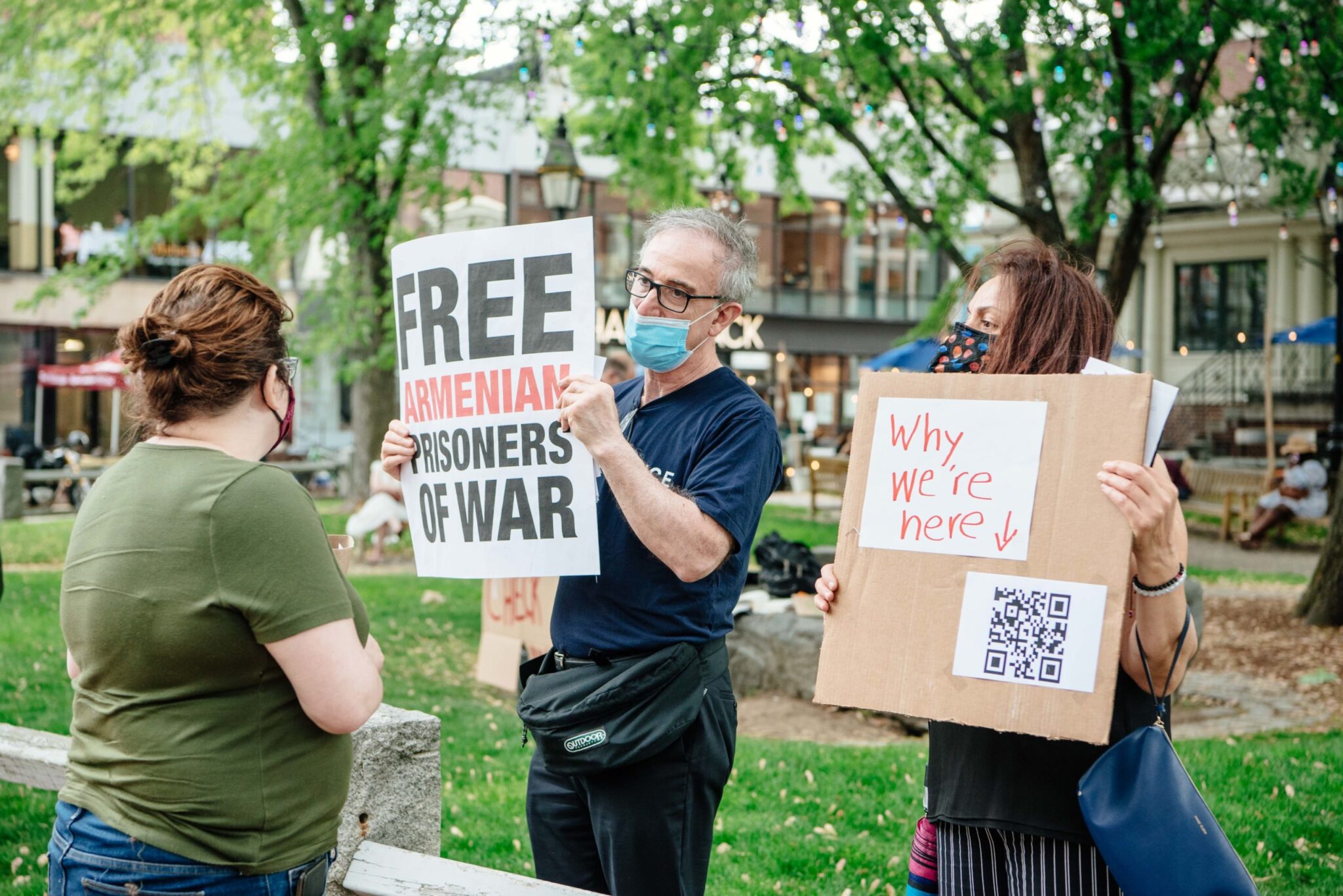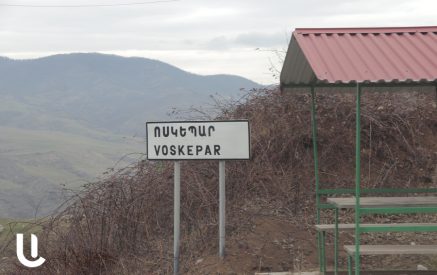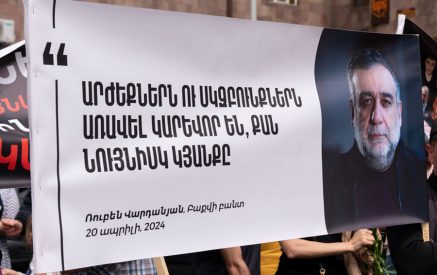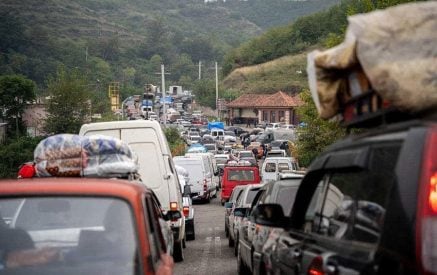by Stepan Piligian
The global Armenian nation has a well-deserved reputation as a peaceful and valuable community. Whether in the homeland or our vast diaspora, our people have opted for civil relations internationally and contributed to the development of our earthly civilization. There have been times in our history when our affinity for peace has been confused with a tendency for passivity. They are not the same and should not be viewed as interchangeable. A peaceful nation is usually connected with respectful behavior and a commitment to avoiding conflict. This clearly describes Armenia, particularly in modern times when its military actions have consistently been in a defensive mode. One can advocate for peace, but if the other party seeks violence, then defending your rights comes into play.
This is the story of 1918 and more recently of the Republics of Armenia and Artsakh. Passivity means accepting the current reality with minimal resistance. If one lives on the eastern and southern border regions of Armenia, they experience a commitment to peace but not passivity. The people of Tavush, Kapan, Goris and the surrounding villages know the difference between praying for peace and accepting oppression. If you frequent the cafes of Yerevan, you might find a different perspective. Patriotism and activism are more of an academic exercise, given the geographic distance from the challenges facing the border regions. There is a more urbane and casual approach to what our border regions experience each day. It is far more complicated in the diaspora. Most diaspora Armenians possess an opinion on the issues of peace and the risks of passivity, but the physical distance and cultural aloofness enable opinions without commitment. Thankfully, many in the diaspora have discovered an identity that allows for “skin in the game,” either through philanthropy, dual citizenship or onsite participation, but the majority remain on the periphery. The challenges facing Armenia’s sovereignty over the last 30 years have sharpened our understanding of the mission of the diaspora. While contributions have evolved from financial support to NGO development and repatriation, the diaspora has struggled with its public political support role. This is partially due to the diversity of what we refer to as the diaspora. Is it the role of the diaspora to support the republic or to express views that may be independent? What is patriotism? I wish the struggle was limited to a difference of perspectives. Unfortunately, ambivalence is a major concern.
Read also
This political identity challenge is partially hidden from view because of the strong public infrastructure of our organizational foundation with groups such as the ANCA, Assembly, ARS and AGBU. Technology and marketing platforms have inflated the public perception of these groups, which benefits both Armenia and the organizations. They are led by patriotic Armenians with notable commitment. In spite of these impressive foundations, our best work is done through programs that are organized over time, not with sudden changes in our political environment. In the last two years, Armenians have suffered physically and psychologically with the atrocities committed in Artsakh. The illegal blockade and forced deportation of the entire population are surreal reminders of the genocidal policies of Ottoman Turkey. The diaspora’s response through humanitarian aid has been admirable. Our generosity knows no bounds for our brethren. To the extent that local parishes have organized efforts or national groups have mobilized, it has been inspiring and meaningful, albeit time consuming. Our political responses have been less effective.
I am particularly concerned about the lack of public outrage over the up to 80 hostages held by Azerbaijan, including civilians and former government officials of Artsakh. We should not be surprised by the Azeri criminals. They have consistently violated international law for decades through humanitarian and territorial violations and human rights abuses. This is a country that commits genocide through blockades designed to starve an entire population and ignores the international court they have committed to honor. Azerbaijan is an uncivilized dictatorship, and we know this. We should focus on the passivity of our response to Azerbaijan’s hostage taking. These are not POWs held in accordance with an international convention. These are political prisoners held as hostages to extract a political ransom. We have failed to display a sustained public outrage demanding resolution.
We live in a time when the national media is flooded on a daily basis with pictures of the Israeli hostages held by Hamas. Despite the atrocities committed by Israel in response, with the complete devastation of Gaza and over 25,000 lives lost (majority of them women and children), the focus remains on the hostages. One of the ways our passivity manifests is through rationalization for inaction in the diaspora. Many Armenians say it is unfair to compare ours to the Israeli/Palestinian conflict. There is some merit to this argument, but where are our posters, vigils and demonstrations? While our compatriots rot in Azeri prisons, our inaction is depressing. Are we numb over the volume of atrocities? Are we fatigued by the continuous losses? Have we become overwhelmed with a belief that our actions don’t count? Or is it that we simply don’t care? I have asked these questions of many Armenians in the American diaspora. As you can well imagine, there are a variety of responses, ranging from ‘It is our leaders’ responsibility’ to ‘No one is listening.’ Perhaps the most alarming response that I have encountered comes from individuals with negative opinions of some of the prisoners. I found this to be particularly unfortunate. Our hostages should be viewed only as fellow Armenians held by a barbaric enemy. Anything that connects inaction to political views is irresponsible and keeps us in political infancy. Our limited activism on the Armenian hostages is an example of the challenges facing the diaspora politically. How can we declare our solidarity with our imprisoned brethren yet offer little in terms of meaningful support? Maintaining awareness in a world crowded with tragedies is an important role of the diaspora. It is important to distinguish between legal advocacy, such as litigation filed with the European Court of Human Rights (ECHR) on behalf of the jailed hostages, and the type of public activism we are all capable of in every diaspora community.
Community-based activism has two primary purposes. The first and most visible is to influence decision makers in government or other important circles. Another objective that is often taken for granted is to keep the Armenian community itself aware, informed and energized. Maintaining generational continuity in activism is critical to sustaining our advocacy campaigns. The ANCA and Armenian Assembly both operate with a core of dedicated resources who are ardent activists and financial supporters, but they actually represent a small plurality of the community. This is fairly typical of how community activism works. They count on the peripheral majority to support public programs such as demonstrations, educational programs and lobbying. Our performance to date on current issues is questionable. Sustainable public events are infrequent. There are noble efforts sponsored by the AYF and Zoravik that need stronger public support. The activists who fight against Azeri oppression and community passivity usually take a long-term view of this work. It is important that they not become disheartened by underwhelming support. They understand that it is always a well-organized minority who works to inspire the majority. We should be thankful for their dedication, but the best way to honor their commitment is to become and stay active. Our hostages in Azerbaijan need our public support to keep the focus on their release. It is not enough for us to occasionally share our private disgust with the crimes of Azerbaijan. If the Armenian community does not display its unrelenting commitment to reversing this tragedy, then what can we expect of third party mediators? We must garner our energy and channel it effectively in the public domain. There are too many problems in this world to resolve in a timely manner. Influence, visibility and aligning interests determine who gets rewarded.
Armenia and Azerbaijan are engaged in volatile peace negotiations that at some point will address territorial integrity, border demarcation and the hostages. It should be our role to keep the spotlight on the illegal incarceration of the citizens, soldiers and public servants. During the Artsakh blockade, I shared the work of two New York Armenians who sponsored a daily (weekday) vigil in front of the United Nations to bring attention to the genocidal blockade denying the people of Artsakh basic human necessities. It was very effective, because it was simple and sustainable. It attracted a diverse audience of Armenians, who established relationships that have opened new avenues. Their work was visible in Artsakh and gave hope to those suffering that they were not forgotten.
It is important to advocate for land and rights, but the release of our hostages is comparable to providing humanitarian relief to our Artsakh refugees. The eight former members of the Artsakh government are brave individuals who consciously decided to stay with their people. They didn’t attempt to use their positions for a privileged exit. They were detained as deportees by the Azeri military. There are others who were defending their homes, seeking medical help or simply living in their ancestral homeland. To the Azeris, they are traitors and disloyal, which is reminiscent of the Turkish revisionism that has educated generations that the Armenians were problematic. To all Armenians, they are our brothers and sisters who are deserving of our best efforts to secure their freedom.They must never be forgotten, and we have a responsibility to advocate. The best way to oppose this threat of passivity is to stand tall against the injustices that remain unresolved. Activism dilutes passivity. Each of us is capable of organizing public events to educate and promote an end to their imprisonment. It is here in the diaspora, living in the midst of the European Union, United Nations and their affiliates, that we can keep this topic fresh while the negotiations continue. If you are feeling helpless concerning Artsakh (I have heard this from many), immerse yourself in the humanitarian work of the deportees and the plight of our hostages. It is important work, and you will be making a contribution to reduce dangerous passivity.


